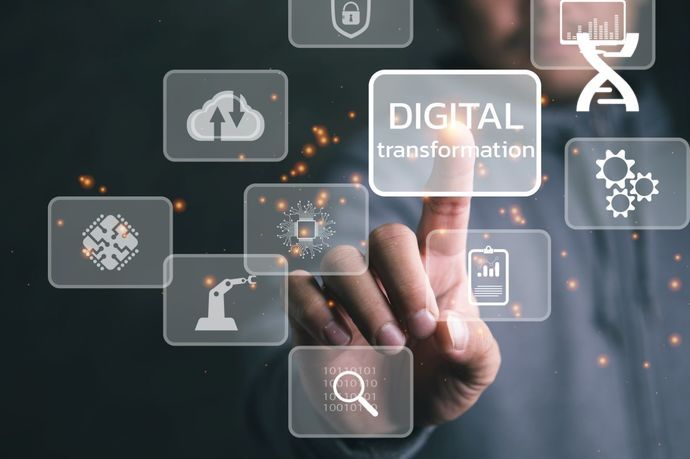Digitizing the supply chain
The challenges of digitization
After some procrastination, few companies are still asking themselves the question of the relevance of the digital transformation of their supply chain. In the age of Industry 4.0 and Big Data, dematerializing logistics supports is an essential investment in the growth and sustainability of a professional infrastructure.
This approach responds to a key challenge: interacting in a more relevant way with consumers eager for real-time information. Improving UX, for User Experience, is a substantial competitive advantage for any company. Consumers will be impressed by a sales process that is efficient, transparent and pleasant, and they will inevitably seek to use the company's services again in the future.
Digitizing the supply chain also means streamlining the flow of goods between the various players in the supply chain, and thus facilitating open-book collaboration. The principle of collaborative relationships induced by the dematerialization of logistics supports will facilitate the sharing of strategic information linked to the product and/or service between the company, its suppliers and its customers. Ideal for sending the right information to the right person at the right time Today, the need to digitalize the supply chain concerns a wide range of companies. The variety of solutions on offer will meet the needs of every structure, whether their requirements concern the control and management of warehouses or mechanized lines, the transport of goods or the optimization of processes linked to e-commerce retail management.
Key digitalization technologies: blockchain, IoT and AI
The rapid evolution of the digital world explains why many professionals and start-ups sometimes struggle to implement these structural changes, which are nonetheless essential to the vitality of their structures.
The implementation of technologies such as IoT (Internet of Things), blockchain or AI (Artificial Intelligence) would, however, be able to ensure operational efficiency without the slightest human intervention. For some years now, cloud computing has also been an integral part of everyday life for the most advanced companies.
In recent years, AI has established itself as a particularly effective tool for sales forecasting and inventory management. The reason for this success? The use of complex computer models offering more reliable forecasts than ever before. Artificial Intelligence is particularly well developed in the omnichannel distribution sector. The power of this technology makes it possible to manage the imperatives of e-commerce preparation by the unit and in-store replenishment by the pallet far more efficiently than a human could. Machine Learning, and in particular "store clustering", offers the opportunity to better understand in-store customer behavior, and thus to adjust assortment accordingly.
From a general point of view, any sustainable digitalization strategy should be built around three flows:
- The financial flow circulating between the various players involved in the process or transaction.
- The material flow, corresponding to the circulation of goods and product movements.
- The information flow, essential to the smooth circulation of information and the optimization of sales processes. To better understand the issues raised by each of these technologies, it may be worthwhile calling on the services of a specialized consulting firm. Data migration is easier and less costly than you might think.






